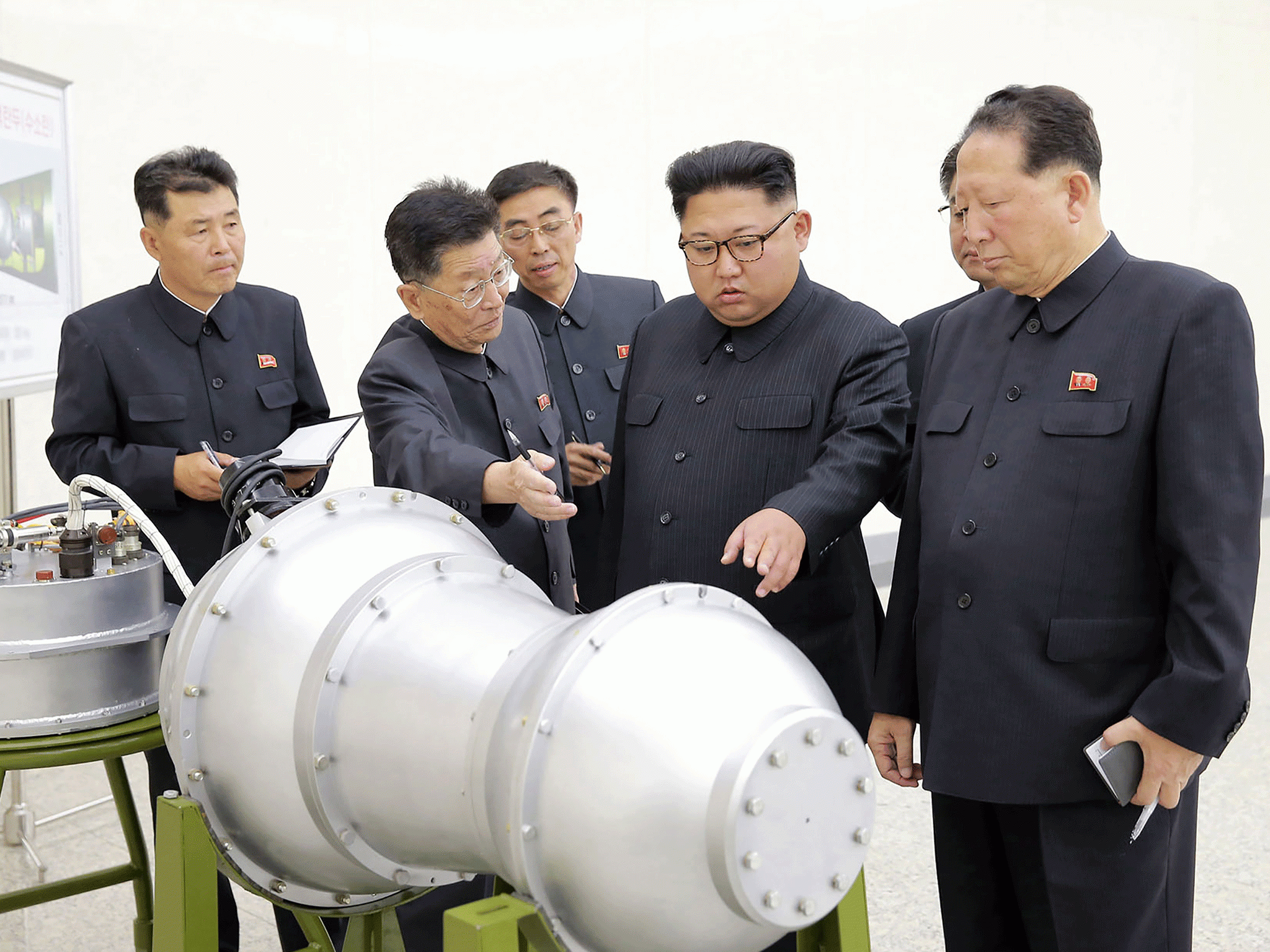North Korea nuclear test: What is a hydrogen bomb? Is it the same as a thermonuclear device? Who else has nuclear weapons?
Experts say there is enough evidence to suggest reclusive state has either developed hydrogen bomb or is getting very close

Your support helps us to tell the story
From reproductive rights to climate change to Big Tech, The Independent is on the ground when the story is developing. Whether it's investigating the financials of Elon Musk's pro-Trump PAC or producing our latest documentary, 'The A Word', which shines a light on the American women fighting for reproductive rights, we know how important it is to parse out the facts from the messaging.
At such a critical moment in US history, we need reporters on the ground. Your donation allows us to keep sending journalists to speak to both sides of the story.
The Independent is trusted by Americans across the entire political spectrum. And unlike many other quality news outlets, we choose not to lock Americans out of our reporting and analysis with paywalls. We believe quality journalism should be available to everyone, paid for by those who can afford it.
Your support makes all the difference.North Korea said it had conducted its sixth and most powerful nuclear test, drawing swift international condemnation.
The North said it had detonated an advanced hydrogen bomb, marking a major step in its long-stated goal of developing a nuclear-tipped missile capable of hitting a major US city.
Experts who studied the impact of the earthquake caused by the explosion, measured by the US Geological Survey at magnitude 6.3, said there was enough strong evidence to suggest the reclusive state has either developed a hydrogen bomb or was getting very close.
The detonation produced 10 times more power than the fifth nuclear test a year ago, South Korean and Japanese officials said.
What is a hydrogen bomb?
A hydrogen bomb or H-bomb is the colloquial term for a two-stage thermonuclear bomb, which uses a primary atomic bomb to trigger a secondary, much larger explosion.
The first stage is based on nuclear fission, splitting atoms, while the second is based on nuclear fusion, producing a much more powerful explosion than traditional atomic bombs.
Once nuclear fusion is started, fast neutrons are created which once again trigger nuclear fission of uranium inside the bomb, causing explosions to double and triple, greatly increasing its explosive power.
What is an atomic bomb?
Atomic bombs only use nuclear fission, splitting the nucleus of an atom, splitting plutonium and/or uranium into smaller atoms in a chain reaction which releases massive amounts of energy.
The bombs dropped by the US on Hiroshima and Nagasaki during WWII were both atomic bombs.
Does North Korea have a hydrogen bomb?
Hours before the latest test, North Korean state media published photographs of leader Kim Jong-un inspecting a peanut-shaped device that it said was a hydrogen bomb designed to be loaded on a new ICBM.
The elongated shape of the device shows a marked difference from pictures of the ball-shaped device North Korea released in March last year, and appears to indicate the appearance of a two-stage thermonuclear weapon, experts said.
North Korea's Nuclear Weapons Institute said the test verified the functioning of a hydrogen bomb, including the "fission to fusion power rate and all other physical specifications reflecting the qualitative level of a two-stage thermo-nuclear weapon," according to the official KCNA news agency.
For the first time, North Korea also specifically mentioned the possibility of a electromagnetic pulse, or EMP, attack.
Such a strike would involve detonating a bomb in the atmosphere, instead of firing a long-range missile at a major US city.
Who else has nuclear bombs?
The Arms Control Association estimates the US has 6,800 nuclear warheads, while Russia has closer to 7,000.
The UK has around 120, of which 40 are deployed at sea on Vanguard class ballistic missile submarines, while France has around 300 and China 270.
India and Pakistan are estimated to have around 120 nuclear missiles, and Israel is suspected of having around 80.
Join our commenting forum
Join thought-provoking conversations, follow other Independent readers and see their replies
Comments